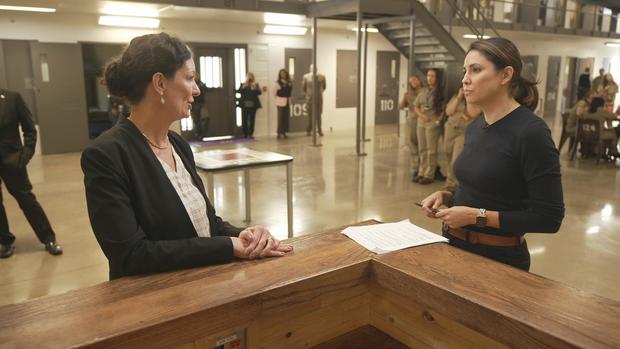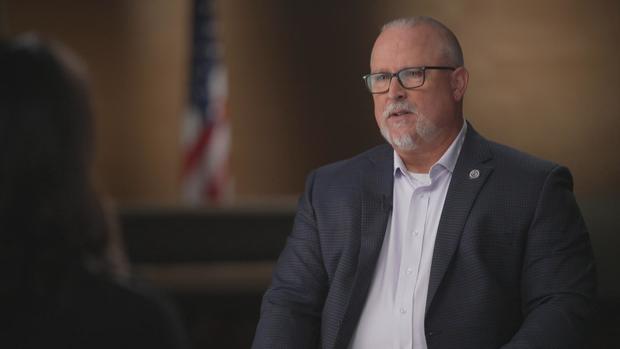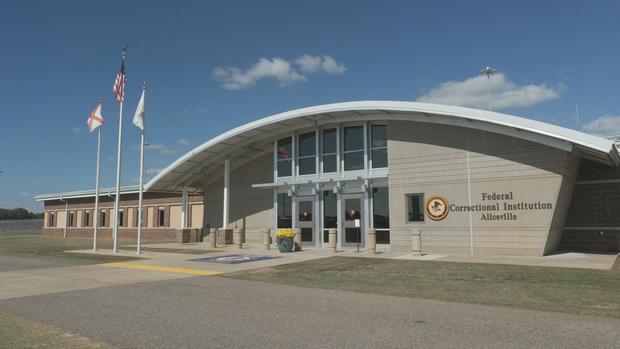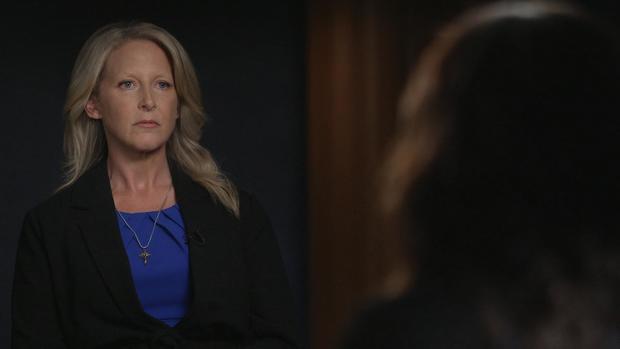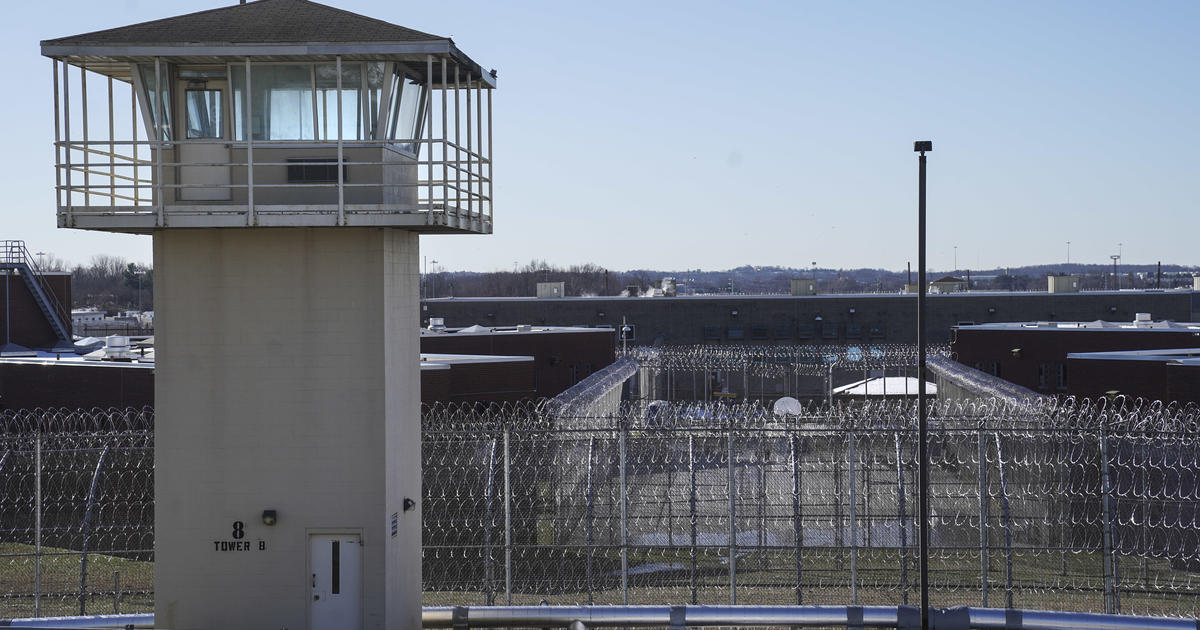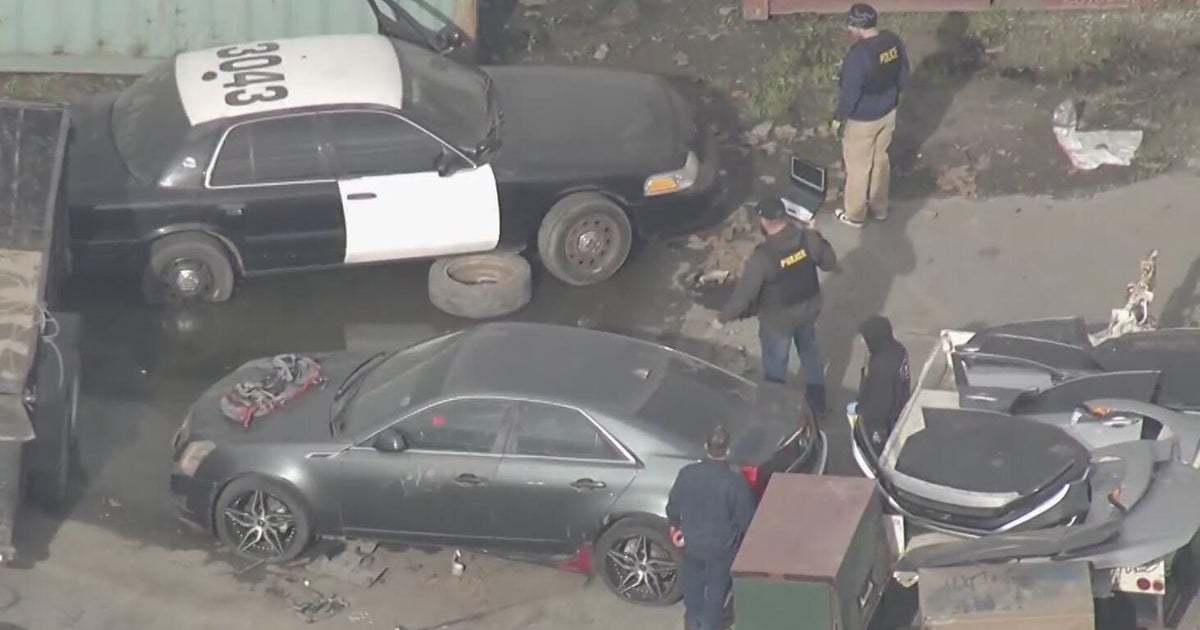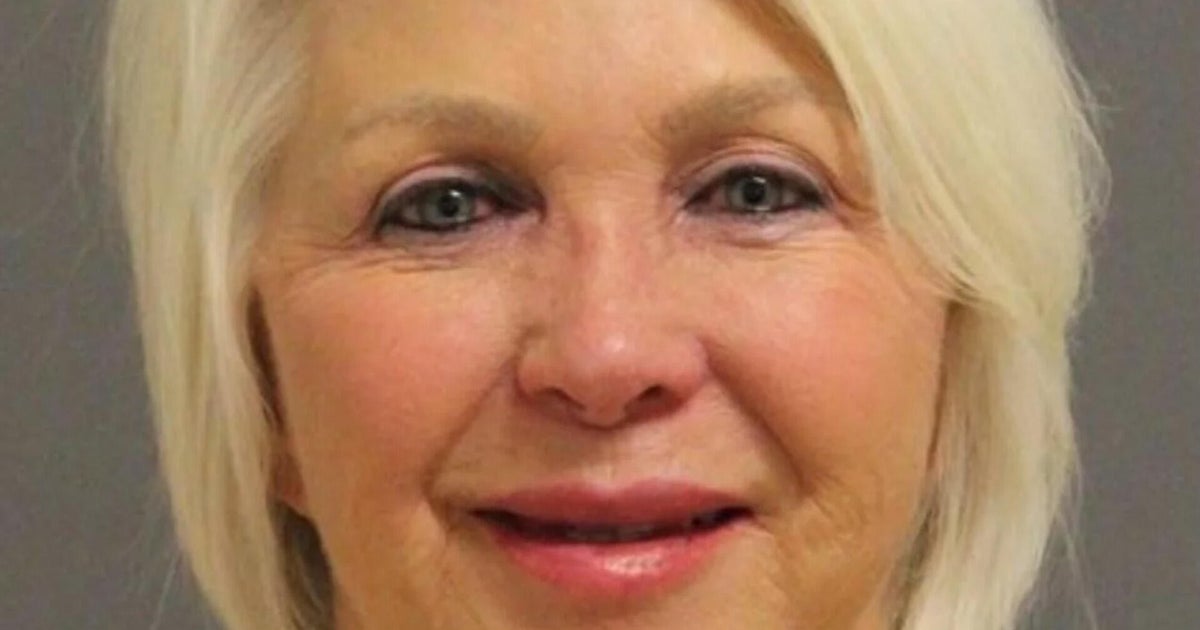Inside the Bureau of Prisons, a federal agency plagued by understaffing, abuse, disrepair
This is an updated version of a story first published on Jan. 28, 2024. The original video can be viewed here.
The United States federal prison system has 158,000 inmates in its custody and locks up some of the most dangerous and high-profile criminals in the world.
Serial killers and terrorists are among those inside its 122 prisons, which include supermax penitentiaries and minimum security camps. The cost to American taxpayers is more than $8 billion a year.
Tonight, we will take you inside the Federal Bureau of Prisons, an agency in crisis.
A series of government investigations has found the bureau's workforce is dangerously understaffed and, as we first reported in Janiary, inside its women's prisons, there is an alarming pattern of abuse.
Colette Peters is in charge of fixing the Bureau of Prisons. She's the sixth director in six years.
This is Aliceville – a low-security women's prison in rural Alabama where more than 1,400 inmates are serving time.
Colette Peters: People drive past prisons every day.
Cecilia Vega: Yeah, they're terrified of them.
Colette Peters: Or they don't think about them at all. Right, it's kind of like this forgotten zone. I don't want people to forget about this place.
Colette Peters became director of the Bureau of Prisons in August 2022.
After a 20-year career in corrections, she's built a reputation as a reformer – before becoming director, she was credited with shaping Oregon's state prison system by prioritizing staff mental health support and advocating for the compassionate treatment of inmates.
Colette Peters: I have this very early memory in kindergarten where an individual came in with a pocket knife and was marched to the principal's office. And I just remember in that moment saying, "I wanna help him."
Cecilia Vega: Many people in your custody are there because of horrific crimes. Why do they deserve compassion?
Colette Peters: Because 95% of them are gonna come back to our community someday, and I want them to be productive, tax-paying citizens who no longer commit crimes.
But the Bureau of Prisons is so inadequately staffed it is struggling to fulfill its mission: rehabilitating inmates and keeping its prisons safe.
Government watchdogs have documented disrepair in all of its institutions – requiring more than $2 billion in fixes.
And employees rank the Bureau of Prisons the worst place to work in the federal government.
Cecilia Vega: It's very rare for the media to be allowed inside a federal prison. Why are we here?
Colette Peters: I truly believe in transparency. Are we perfect? No. Do we have issues we need to resolve? Absolutely. But I want people to see the good stuff.
We toured Aliceville with Director Peters…
And saw where inmates live... learn new trades...and work... on this day, sewing sleeping bags for the military -- a coveted job because it pays $1.15 an hour.
This ceremony is for inmates graduating from a faith-based program preparing them for life on the outside by connecting them with community leaders and teaching them life skills — like anger management.
But the reality is nearly half of federal inmates will end up back behind bars or arrested within three years of getting out.
Cecilia Vega: A lot of those faces in there, who have so much promise and hope today, could end up right back in here.
Colette Peters: Yeah. You know, I think we have a lot of work to do to dial down that recidivism rate. We have to send fewer people to prison for shorter periods of time. And then when they're here do things like this.
Cecilia Vega: You also have a major staffing issue, and people can't get these classes that they need.
Colette Peters: Right. Staffing was a problem before the pandemic, and so tha– those recruitment efforts and those retention efforts have gotten hard.
Cecilia Vega: How many correctional officers do you need on staff to get you out of this staffing crisis?
Colette Peters: So we hope to have that real number for-- you and the public-- very soon.
Cecilia Vega: That seems like a critical number. How was that not on your desk when you s-- took this job on day one, and-- and still not there a year later?
Colette Peters: So the good news is this was a problem the bureau was trying to solve before I got here, and we're in the process of solving it.
Director Peters says she expects to have the number of officers needed by October – more than two years after taking office.
But Shane Fausey, the recently retired president of the federal prison employees union, says he knows what that number is now –
Shane Fausey: We're short about 8,000 positions nation-wide.
Cecilia Vega: How bad is it?
Shane Fausey: It results in one of us losing our lives. And it's that bad. We can't continue with this course.
By the union's count, the Bureau of Prisons is down about 40% of the correctional officers it needs…
Shane Fausey: The less supervision you have, the more bad things happen.
Shane Fausey: Misconduct increases.
Shane Fausey: Violence increases.
And because there are not enough officers, the bureau relies on other prison staff to step in. It's a controversial practice called augmentation.
Shane Fausey: Teachers, nurses-- doctors, food service people, the people that maintain facilities,
Cecilia Vega: They're doing what now?
Shane Fausey: They're in a housing unit, supervising offenders.
Cecilia Vega: Do they have training in that?
Shane Fausey: They do. But I can tell you I'm no better a plumber than they are a correctional officer.
Shane Fausey: I can walk into a housing unit and tell you something's right or somethin's wrong. You develop that over years of experience.
Cecilia Vega: Let's break this down. We are talking about HVAC repairmen and accountants who are now guarding inmates. That doesn't sound safe.
Colette Peters: So it is. So they have the exact same training as the correctional officers.
Colette Peters: Now what I will say is augmentation should only be l-- used in the short-term. We've used this now to solve a long-term retention and recruitment problem. And that isn't right.
On this point the union and management agree: prison staff – like teachers and doctors – need to be able to do their jobs so that inmates don't lose access to critical services and programs.
Shane Fausey: Their buzz phrase is, "Everybody's a correctional officer first." That sounds good on paper. But if you take the teacher out of the classroom, and nobody's teaching the offender the skills to go back out to society, we're just back to warehousing people.
While we walked the halls of Aliceville, classrooms were packed but several inmates told us that much of what we saw on our tour was staged.
Cecilia Vega: Am I getting a real look at what life is like in here today?
Female Voice: Absolutely not.
Female Voice: Unh-uh (negative).
Female Voice: No definitely not.
Female Voice: Absolutely not.
Female Voice: The staff is very disrespectful here.
Female Voice: Even though we made mistakes-- when we're out here, we're not treated with respect.
Cecilia Vega: Do you feel safe here?
Female Voice: Sometimes.
Female Voice: I mean, prison is prison. You see what I'm sayin'?
Cecilia Vega: Tell me about staffing.
Female Voice: They're short staffed all the time.
Female Voice: There's times where you don't know if you're gonna be able to go outside because somebody didn't come to work.
Cecilia Vega: And if you were to speak up about some of these issues that you're telling me about, what would happen?
Female Voice: You'd go into the SHU.
Female Voice: You're goin' to jail.
Female Voice: You're goin' to the SHU.
The SHU, short for special housing unit, is the jail inside a prison – where inmates are segregated from the general population and seldom let outside of their cells…
Cecilia Vega: Make you nervous to talk to me right now?
Female Voice: Little bit.
Cecilia Vega: The director is coming today. What does she need to know about Aliceville?
Female Voice: Fix it.
Female Voice: We need more education, more, like, opportunity to grow and rehabilitate. Cause we don't have that here.
Cecilia Vega: I've talked to a handful of inmates here today, and they say, "Look, you're gettin' a cleaned up version of what life is really like."
Colette Peters: I've been doing this work for a long time-- so I can see when things have been swept under the rug, if you will. I'm not naïve. And when anybody comes to your house you clean it up.
Of all the issues plaguing the Bureau of Prisons- perhaps none is more disturbing than the rampant sexual abuse of female inmates by the male officers who are supposed to protect them.
Women are housed in nearly a quarter of federal prisons.
And a 2022 Senate investigation found that bureau staff have sexually abused female prisoners in at least two-thirds of those facilities over the past decade.
Aliceville is no exception. Three officers have been convicted of sexual abuse since 2020; including one who pleaded guilty earlier this year.
Cecilia Vega: Those are just the cases that we know about. How does this keep happening?
Colette Peters: You can't predict human behavior. But what I can tell you is the things that we're putting in place to manage to that misconduct I think are the right things, and sending a clear message that this type of behavior is egregious, horrendous, and unexcusable.
But female inmates at a women's prison in Northern California accuse Director Peters and the Bureau of Prisons of failing to protect them
Its official name is Federal Correctional Institution, Dublin. But it's known by inmates and staff as "the rape club."
Seven Dublin officers, including the warden and the chaplain, have been convicted of sexually abusing nearly two dozen inmates from 2018-to-2021.
And, this past August, eight inmates filed suit claiming "sexual abuse...continues to this day."
Tess Korth: These are mothers, they're daughters, they're sisters.
Tess Korth worked as a correctional officer at Dublin for 25 years. She resigned in 2022 after she says she was retaliated against for whistleblowing.
Tess Korth: They train us in the red flags to look for. And then when we report, "Hey, they're-- every red flag, this guy meets. You need to go deal with this," they don't do anything.
Cecilia Vega: What was the chaplain doing that made you suspicious?
Tess Korth: One time I came in on a weekend. He didn't know I was there. His office was dark. And he had an inmate in there with him. And I don't know what they were doing…
Cecilia Vega: That's a red flag.
Tess Korth: Oh, definitely.
Former Officer Korth says she reported the chaplain and other officers who she suspected of sexually abusing inmates to an Internal Affairs investigator but was ignored for years – until federal investigators stepped in.
Cecilia Vega: What happened to the officers that you accused?
Tess Korth: Most of 'em-- have been or in the process of being convicted. And a lot of 'em are-- named in lawsuits right now.
Cecilia Vega: How's that make you feel?
Tess Korth: Good.
The Bureau of Prisons has a backlog of nearly 8,000 open misconduct investigations – hundreds of which contain allegations of sexual abuse.
Director Peters hired more staff to tackle the backlog, but she says it will take two years to clear those cases.
In response to the Dublin lawsuit, Bureau of Prisons' lawyers say inmates' claims have been investigated and that "no threat remains."
Colette Peters: We've done a tremendous job in the last year rebuilding that culture and creating-- a institution that is more safe, where individuals feel comfortable coming forward and reporting claims
Cecilia Vega: You just used the phrase, "tremendous job" in Dublin. Eight inmates have filed a class action lawsuit, and they've got testimony from more than 40 current and former Dublin inmates who say that the abuse is ongoing.
Colette Peters: That means the-- the process is working, that they have the ability to come forward. They have the right to bring that class action lawsuit together.
Cecilia Vega: These Dublin inmates say that they are facing retaliation for speaking out.
Colette Peters: I have been very clear that retaliation will not be stood on my watch. And so when allegations of retaliation come forward, they are investigated, and we will hold those people accountable.
Cecilia Vega: It's one thing for you to say that retaliation is not tolerated, but it sounds like it's actually still happening.
Colette Peters: Again, I would say those are allegations. I would like to be more grounded in fact around proven retaliation.
The fact is that an additional 19 staff members have been accused of abusing inmates.
The bureau says those staff members were put on leave, new management was brought in, and working security cameras were installed in areas where inmates were abused.
Cecilia Vega: What are these victims owed?
Colette Peters: To have individuals who are in our care, who rely on us for their safety and security, and to have that be violated, I don't know that you can-- bring anything-- that-- that would undo that wrong.
Cecilia Vega: What about an apology? The victims in Dublin say they've never received an apology.
Colette Peters: Well, I will tell you—that is our mission to keep them safe. That is our job.
Cecilia Vega: Is your job to apologize for what happened in Dublin?
Colette Peters: I don't know that my job is to apologize. Is it heartbreaking and horrendous to have something like that happen-- when you are proud of your profession, as a corrections professional? Absolutely.
After our report first aired, the FBI raided FCI Dublin and, in April, the Bureau of Prisons shut it down. There are now more than 65 former Dublin inmates who have filed lawsuits alleging sexual abuse by Bureau of Prisons staff.
Produced by Natalie Jimenez Peel. Associate producer, Matthew Riley. Broadcast associate, Katie Jahns. Edited by Daniel J. Glucksman.

